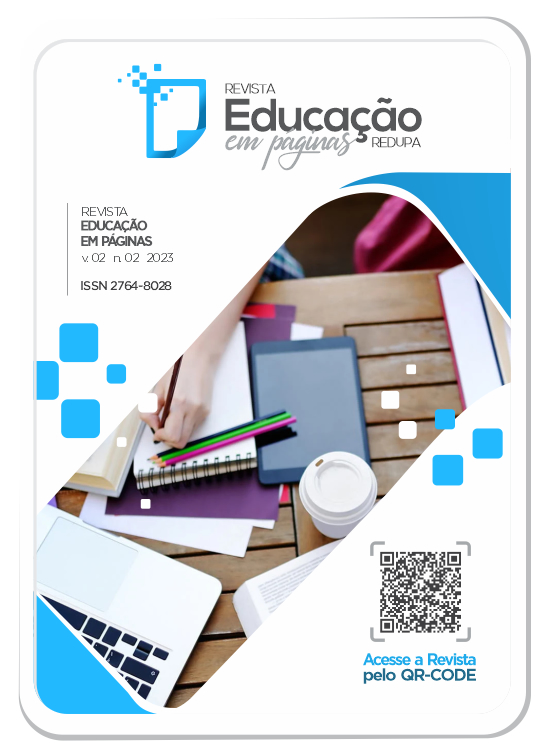Analysis of the use of chemistry textbooks by 9th class students
DOI:
https://doi.org/10.22481/redupa.v2.12424Keywords:
textbook, chemical, learningAbstract
One of the important sources of Chemistry content taught in secondary schools is the Chemistry textbook. Therefore, the main objective of the present study is to analyze the level of use of 9th grade Chemistry textbooks by students. This objective is broken down into the following specifics objectives: (a) identify students who have the Chemistry textbook; (b) to assess the factors that condition the use of the Chemistry textbook by the students; (c) identify the alternative source of information adopted by the students. To achieve these objectives, was chosen the qualitative and bibliographical research. The data collection process was conducted through a questionnaire and structured interview. The first technique was applied to 100 students and the second was applied to four teachers from one of the secondary schools in the city of Lichinga, Niassa-Mozambique. The discussion of the results was carried out using content analysis. The results obtained reveal that many students do not have the Chemistry textbook due to economic issues. This can compromise the learning process of students. Other results show that students resort to other sources of information to solve the activities and exercises proposed by the teacher.
Downloads
References
AMADO, João (coord.). Manual de Investigação Qualitativa em Educação, 3. ed. Coimbra: Universidade de Coimbra.
COSTA, Manoel dos Santos; ALLEVATO, Norma Suely Gomes. Livro didático de Matemática: análise de professor as polivalentes em relação ao ensino de geometria. In Revista Roya, Santa Maria, V. 30, n. 2, p. 71-80, jul/dez, 2010.
COSTA, Maria Helena de Carvalho et al. O Papel do livro didático no processo educativo. 2017. In: IV Congresso Internacional de Educação. Disponível em: https://www.editorarealize.com.br/editora/anais/conedu/2017/TRABALHO_EV073_MD1_SA2_ID7225_26092017152510.pdf. Acesso em 13 abr. de 2023
DANTES, Luiz Roberto. Livro Didático de Matemática: uso e abuso? In: Em Aberto, Brasília, ano 16, n.69, jan./mar. 1996.
DIEHL, Aston António. Pesquisa em ciências sociais aplicadas: métodos e técnicas. São Paulo: Prentice Hall, 2004.
Disponível em: http://educa.fcc.org.br/scielo.php?script=sci_abstract&pid=S0100-15741995000300006&lng=pt&nrm=iso&tlng=pt. Acesso em 06 abr. de 2023.
DOMINGUINI, Lucas. Fatores que evidenciam a necessidade de debates sobre o livro didático. In Congresso internacional de Filosofia e Educação, Rio Grande do Sul, Brasil, maio de 2010. Disponível em: https://www.ucs.br/ucs/tplcinfe/eventos/cinfe/artigos/artigos/arquivos/eixo_tematico7/Fatores%20que%20Evidenciam%20a%20Necessidade%20de%20Debates%20sobre%20o%20Livro%20Didatico.pdf. Acesso em 06 abr. de 2023.
GROSSI, Gabriel Pillar. Leitura e sustentabilidade. Nova Escola, São Paulo, 2008.
GUERRA, Isabel Carvalho. Pesquisa Qualitativa e Análise de Conteúdo: sentidos e formas de uso. Portugal: Principia, 2006.
KATO, Cláudia Mikie. A utilização do livro didático em aulas de Química. 2014. 103p. Dissertação (Mestrado em Educação para a Ciência e Matemática). São Paulo, Brasil: Universidade Estadual de Maringá
LAJOLO, Marisa. Livro didático: um (quase) manual do usuário. In: Em aberto, ano 16, n. 69, Brasília, 1996.
MARTORANO, Simone Alves de Assis. As concepções de Ciências dos livros didáticos de Química, dirigidos ao ensino médio, no tratamento da cinética no período de 1929 a 2004. 2007. 226p. Disssertação (Mestrado em Ensino de Ciências)-Biociências/Faculdade de Educação da Universidade de São Paulo, 2007.
MOHR, Adriana. Saúde na Escola: análise de livros didáticos de 1ª e 4ª séries. In: Cad. Pesq., São Paulo, n. 94, p. 50-97, ago. 1995.
NIVAGARA. Daniel (2013). Didática Geral: aprender a ensinar. Universidade Pedagógica: Moçambique.
RÊGO, Luciane Borges do; LIMA, Maria Vitória Ribas de Oliveira. Didática. Recife: UPE, 2010.
Downloads
Published
How to Cite
Issue
Section
License
Copyright (c) 2023 Elvira Domingos, Merce Manuel Nambale Combe, Almeida Meque Gomundanhe

This work is licensed under a Creative Commons Attribution 4.0 International License.






